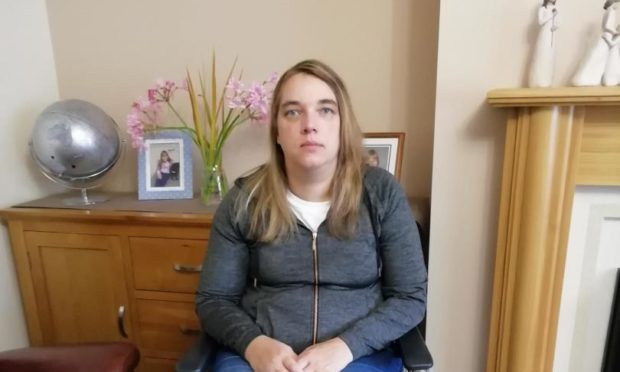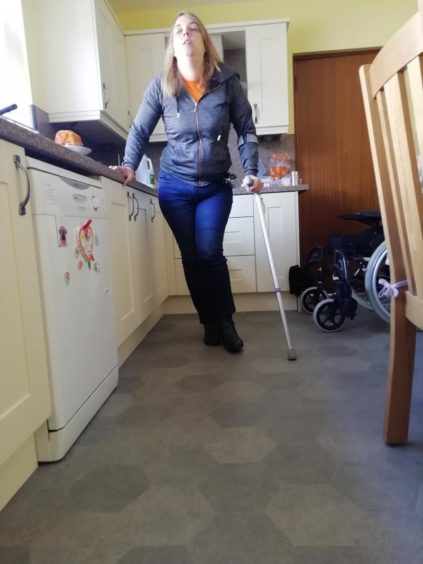A Moray woman with multiple sclerosis (MS) has told how a lack of access to services during the pandemic has left her in excruciating pain as her symptoms intensify.
Susan Shand, from Keith, was diagnosed with secondary progressive MS in 2009 before suffering a relapse in January last year.
Her condition left her with numbness in her right arm and both feet, but physiotherapy helped with her mobility a lot.
However, the 42-year-old, who lives with her parents and 12-year-old daughter, has spoken of how a lack of access to vital therapy sessions during the pandemic has resulted in her taking a “big step backwards” in her recovery.
She said: “Walking is not impossible but I can’t walk far. I’ve got very little feeling in my fingers and I had a relapse in January last year and lost the feeling in my right arm. My hands never recovered fully from that. It’s all stiff and numb.
“The legs are the main problem, always have been. I’ve no feeling in my feet and have pins and needles in my calf muscles. Over the years my walking has just gone.
“Since I’ve not been going, it’s just got worse. The pain in my legs is worse, and I’m noticing pains I’ve not had for months. It’s almost like I’ve taken a big step backwards.”
Following a UK-wide survey carried out by the MS Society, findings found that since March of this year seven in 10 people with MS (69%) hadn’t been able to speak to a rehabilitation professional.
Meanwhile, four in 10 (40%) of the 1674 people asked said that they had experienced appointment cancellations of delay due to concerns about infection.
A clinic based at the local Moray College closed to patients, the mother-of-one began taking zoom sessions at the start of the pandemic – but stopped due to a lack of space at home.
Health professionals have now begun conducting house calls every two weeks, however, she admits this “doesn’t seem to be enough” and is fearful this will have a long-term effect on her condition.
She added: “I need a lot more help with it than I did before.
“I really hope this doesn’t affect my symptoms in the long run, I hope I can go back to my weekly sessions, which I’m fairly confident we will.”
More than 15,000 people across Scotland suffer with MS with more than a third of people (34%) of people admitting they felt their symptoms get worse during lockdown during a recent survey carried out by the MS Society Scotland.
With the devastating impact of the pandemic, and the looming threat of a second wave, the MS Society has launched a pledge for local health leaders across Scotland and the UK to sign to protect access to services.
Morna Simpkins, director of MS Society Scotland, said: “We’re asking local health leaders to sign our pledge to ensure that the Scottish Government follows through on their positive commitments so that people with long-term neurological conditions like MS can access the rehabilitation support they need – to prevent the painful and life-limiting effects of MS getting worse as the pandemic continues.”

